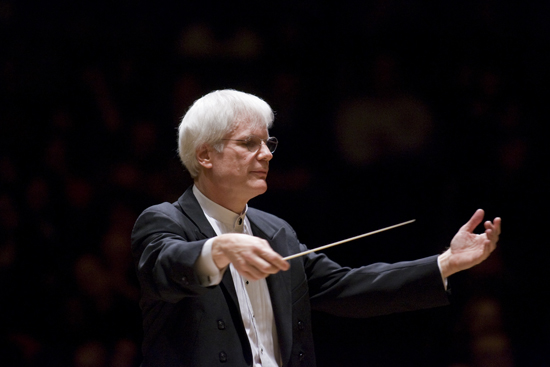Cantata Singers provide stellar advocacy for Jan Zelenka’s music
Thanks to David Hoose and the Cantata Singers, the music of Jan Dismas Zelenka is having its day in the sun.
The Czech composer’s Te Deum in D, heard in its belated Boston premiere Sunday afternoon at Jordan Hall, is a marvel of high Baroque style. Scored for double choir, five vocal soloists, and an orchestra that includes four trumpets, the work is rich in spinning melody, colorful instrumental effects, and bracing harmonic writing.
Zelenka was born six years before Johann Sebastian Bach and, though little is known of his personal life, there is plenty of evidence that the younger composer thought highly of the elder’s style.
The Te Deum in D, actually the second one the composer penned, runs a half-hour in length and is spacious in its treatment of the text. The score, moreover, is thoroughly vibrant and filled with the same drama one can easily find in the music of his better-known contemporary.
That is most evident in the choral movements as Hoose and the Cantata Singers gave a colorful reading that made a strong case for this overlooked work. The opening “Te deum laudamus” sounded with power and energy, with Terry Everson supplying high-note fireworks on the trumpet. The “Judex créderis esse ventúrus” opened with phrases of bold conviction, while the ensuing “Te ergo quaesumus” softened to a prayerful glow. The “Salvum fac populum tuum” was haunting as it flowed in a single chant-like line in the tenors.
Zelenka’s vocal writing is attractive and shows a tendency for long, bouncy melismas, particularly in movements that featured vocal soloists. Sopranos Karyl Ryczek and Lisa Lynch rendered “Tu rex gloriae” with infectious energy, and tenor Jason Sabol and bass Will Prapestis made for a vibrant duet in “Tu ad dexteram Dei sedes.”
Most affecting was “Per singulos dies,” a beautiful vocal trio featuring Ryczek, Lynch, and alto Kim Leeds. Supporting their smooth-toned singing were the sounds of trickling flutes, lovingly played by Christopher Krueger and Jacqueline DeVoe, as the orchestra’s violins, supplied a soft bassetto line.
The first half of the concert was dedicated to a more familiar work of Baroque vitality, Bach’s Magnificat in D.
This brilliant score is Bach’s only known setting of the text, and its eleven compact movements pack as much of a dramatic punch as his passion settings.
That was immediate from the opening movement, where the full powers of the Cantata Singers chorus and orchestra were on display. The singers performed with fine diction and muscular energy. The lines of “Fecit potentiam” sounded with strength, and the vocal fugue of “Sicut locuts est” flowed in long, precision-cut phrases. The “Omnes generationes” had lightning power and energy, with Hoose punctuating the phrases with well-placed accents.
Here too, the vocal soloists, drawn from the Cantata Singers’ ranks, sung with commitment.
Soprano Lisa Lynch rendered a soft, buoyant “Et exsultavit.” Alexandra Whitefield sang “Quia respexit” with a warm and jovial soprano voice, while oboist Peggy Pearson spun sorrowful lines in support.
Bass Mark Anthony Cleveland’s bright, bell-toned voice brought stirring energy to “Quia fecit.” And Eric Christopher Perry’s tenor made for a fiery and dramatic “Deposuit.” The standout was Jennifer Webb, who sang “Esurientes” with a warm, buttery alto.
The concert also featured two orchestral works by each composer.
The Sinfonia from Bach’s Cantata “Am Abend aber desselbigen Sabbaths” featured the orchestra in playing of soft elegance. The woodwind trio, consisting of Peggy Pearson (oboe), Kristen Severson (oboe), and Jensen Ling (bassoon), provided the highlights with gently waving melodies.
But it was Zelenka’s music that won the day. The first movement of the composer’s Ouverture a 7 in F, which opened the concert, was a pure delight and brimmed with buoyant energy. Some passages contain harmonic progressions that are as surprising today as they must have been in the composer’s time. Hoose led the orchestra in a stirring performance. Kudos to the Cantata Singers for bringing Zelenka’s music to life at long last.
Posted in Performances
